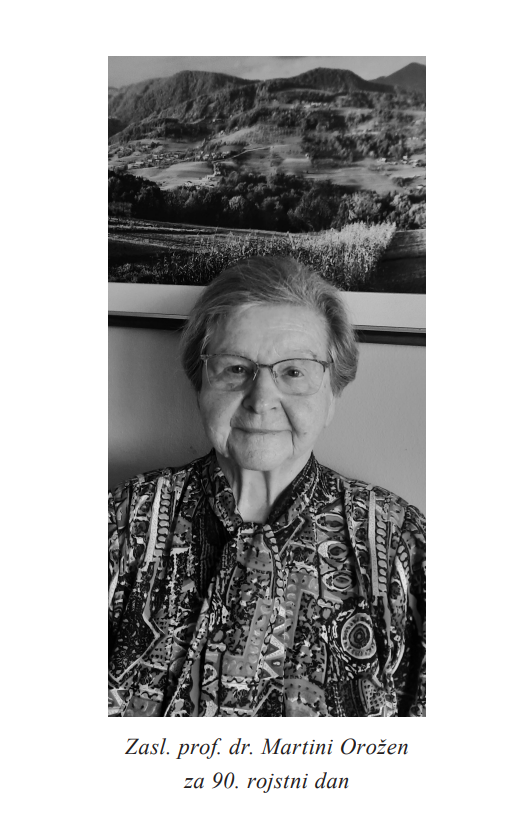Языки в системе образования Республики Крым: анализ медиадискурса
DOI:
https://doi.org/10.18690/scn.14.2.272–289.2021Ključne besede:
jezikovna politika, Krim, jezik poučevanja, medijski diskurz, diskriminacijaPovzetek
Cilj raziskave je primerjati izobraževalno jezikovno politiko, ki se uradno izvaja v Republiki Krim, z de facto jezikovno politiko, kot se odraža v medijskem diskurzu in na družbenih omrežjih v obdobju 2014–2020. Raziskava metodološko temelji na teoriji konstruiranja družbenih vprašanj (Spector, Kitsuse 1977), ki izhaja iz načel družbenega konstruktivizma (Berger, Luckmann 1966). Študija kot osnovni delovni postopek uporablja kvalitativno analizo vsebine. Avtorji sklepajo, da uradni podatki o vernakularnem izobraževanju na Krimu delno sovpadajo z informacijami, objavljenimi v medijih in obravnavanimi na družbenih omrežjih. To se še posebej nanaša na vse manjše število tistih, ki se izobražujejo v ukrajinskem jeziku. Gledano na splošno ima izobraževalna jezikovna politika v regiji podporo večine Krimljanov (govorcev ruskega jezika).
Prenosi
Literatura
Арус Манвеловна ГАБРИЕЛЯН, 2017: Языковая политика в сфере среднего и высшего образования Крыма. Таврический научный обозреватель 9/26, 64–76.
– –, 2018: Родной язык в сфере среднего образования Крыма как отражение языковой картины полуострова. Гуманитарная парадигма 4 /7, 15–32.
– –, 2019: Родной язык в сфере среднего образования Крыма как отражение языковой картины полуострова. Статья вторая. Гуманитарная парадигма 1/8, 127–140.
Ольга Анатольевна ГРИВА, Виктор Александрович ЧИГРИН, 2017: Инновационные подходы в сфере этнокультурного образования в Крыму. Культурная жизнь Юга России 3, 80–85.
Юрий Владимирович ДОРОФЕЕВ, 2019: Динамика языковых состояний и ситуаций в Крыму филология и культура. Philology and culture 1/55, 49–56.
Кафедра крымскотатарского и турецкого языкознания, Крымский инженерно-педагогический университет. http://kipu-rc.ru/fakultet-istorii-iskusstv-ikrymskotatarskogo-yazyka-i-literatury/kafedra-krymskotatarskogo-i-turetskogoyazykoznaniya.html (дата доступа: 04.05.2020).
Кафедра украинской филологии, Таврическая академия. https://ta.cfuv.ru/crimeantatar/crimeantatarphilology (дата доступа: 04.05.2020).
Татьяна Владимировна ЛАНОВАЯ, 2018: Республика Крым как уникальный лингворегион российской федерации. Ученые записки Крымского федерального университета имени В. И. Вернадского. Филологические науки. Научный журнал 4 (1)/70, 59–76.
Елена Яковлевна ТИТАРЕНКО, Руслана Низамиевна ГУСЕЙНОВА, 2017: Исторический вектор развития языков в полилингвокультурном сообществе (Крымский опыт). Вестник Московского государственного областного университета. Серия: Русская филология 5, 58–66.
Peter BERGER, Thomas LUCKMANN, 1966: The Social Construction of Reality. A Treatise on sociology of Knowledge. Garden City, NY: Anchor Books.
Malcom SPECTOR, John I. KITSUSE, 1977: Constructing Social Problems. Menlo Park, CA: Cummings.
Государственные и иные языки Республики Крым. Министерство образования, науки и молодежи Республики Крым. https://monm.rk.gov.ru/ru/structure/210 (дата
доступа: 24.5.2020).
Закон Украины «Об основах государственной языковой политики». https://kodeksy.com.ua/ka/ob_osnovah_gosudarstvennoj_yazykovoj_politiki.htm (дата доступа: 22.5.2020).
Конституция автономной республики Крым, 1998: https://base.spinform.ru/show_doc.fwx?rgn=17752 (дата доступа: 22.5.2020).
Конституция республики Крым, 2014: http://crimea.gov.ru/content/uploads/files/Constituciya.pdf (дата доступа: 22.5.2020).
Об образовании в Российской Федерации: Федеральный закон от 29.12.2012 N 273-ФЗ [Электронный ресурс]. Консультант Плюс. http://www.consultant.ru/document/cons_doc_LAW_140174/ (дата доступа: 22.5.2020).
Федеральная служба государственной статистики. Перепись населения в Крымском федеральном округе, 2014: http://www.gks.ru/free_doc/new_site/population/demo/perepis_krim/perepis_krim.html (дата доступа: 22.5.2020).
Prenosi
Objavljeno
Številka
Rubrika
Licenca
Avtorske pravice (c) 2021 Univerzitetna založba Univerze v Mariboru

To delo je licencirano pod Creative Commons Priznanje avtorstva-Nekomercialno 4.0 mednarodno licenco.
Avtorske pravice
Članki so objavljeni pod pogoji mednarodne licence CC BY-SA. https://creativecommons.org/licenses/by-sa/4.0/deed.sl
Plagiatorstvo
Slavia Centralis je nekomercialna in prosto dostopna mednarodna znanstvena revija. Kot taka je zavezana etičnim načelom glede zaupnosti, izvirnosti in intelektualne poštenosti. Kršenje avtorskih pravic in plagiatorstvo obravnava zelo resno, zaradi česar z ustrezno programsko opremo preverja morebitno podobnost z vsebino drugih besedil.
Avtorji morajo upoštevati naslednje:
Predloženo besedilo mora biti izvirni znanstveni članek. Vsi viri morajo biti korektno navedeni. Besedilo ne sme biti istočasno predloženo uredniški presoji drugih publikacij.
Za vključeno gradivo (citati, ilustracije, tabele ipd.) je treba pridobiti ustrezna dovoljenja, ki izhajajo iz avtorskih pravic.
Objava v reviji Slavia Centralis ne predvideva plačila.
